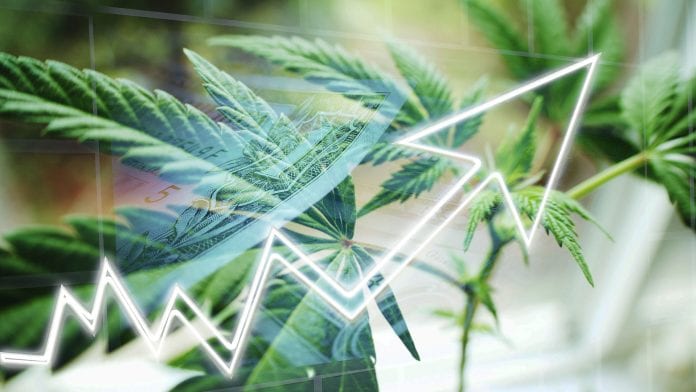
Ajillion creates highly profitable sustainable impact for its partners and customers following its Investment Customer Governance business strategy to win new business opportunities.
Ajillion Corporation, based in Toronto, Canada are specialists in cannabis cultivation and processing, and represent a rare alliance between North American and African teams whose skill sets complement each other perfectly. They are expertly led by a team who have a long history operating in Sub Saharan Africa and ensuring the local community thrives.
Ajillion’s mission is to support agriculture, financial services and increase GDP. They provide stakeholders with increased profits through best practices, social governance and new opportunities and are deploying FinTech and AgriTech solutions in Canada, Europe Asia, Africa and soon London or South Africa.
Medical Cannabis Network spoke with Chief Executive Officer Ian McNeill to discuss the company’s African development plan. McNeill told us: “The strategy we have adopted is working with Environmental Social Governance (ESG) and Social Development Goals (SDG) in order to create an impact throughout Africa. I think that hemp and cannabis both have a long term effect, as the cost of production is extremely low, but I also think that Africa is going to be one of the largest growing economies in the world. There are 1.2 billion people today, with 50% of the population being 25 and under so there are lots of opportunities for jobs and commerce.
“Cannabis is a very significant topic with Africa being an ideal location for cultivating the crop but there is really only so much work that can be done. On the medical side of things, we see that there is a lot of opportunity. One thing that is really taking a lead is in country cultivation and processing is something that we want to keep in-country. That will create other jobs and economic benefits and it can be anything from oil to industrial hemp.
“Cost of production in Africa is extremely low, and that allows for Africa be able to compete with other markets. That is one of the things that is being seen in the marketplace right now as a lot of companies – specifically in the Canadian market – have tremendous amounts of money but there hasn’t been a large return on investment back to shareholders. We are very focused on being able to create a yield back to our partners. There is a need to create in-country partnerships when we go into markets, and at the moment we are in South Africa as well as Zimbabwe building very strong partnerships.”
Cost of production advantages
McNeill continued: “The cost of production in Africa is a lot lower than not only Canada, but also the US, Europe and various other markets. One of the benefits of operating from Africa is that it can become a gateway for supplying the European market, which will be two or three times the size of its North American equivalent.
“The drugs that come from cannabis are doing a lot of good in cancer research, but Africa is not going to have the retail pricing that we see in the North American market. Looking into the pharmaceutical side as well, a lot of the pharmaceuticals currently produced in China and India, are extremely low quality. There is also an opportunity to create new industries within Africa, and one of those is pharmaceuticals rather than needing to rely on China and India.
Supporting the South African community
Ajillion are working hard to support both the farming and general community in Africa to ensure that their presence improves both lives and the economy. McNeill continued: “One thing that people don’t realise is that there’s very little transportation in Africa, so transporting a crop for example, very often results in contamination with mould, with losses shown to be 40-6-% post-harvest; therefore, it is vital to have the ability to carry out processing close to the cultivation site.
The ability to move those crops is usually vital, for example in Europe and North America, it is possible to harvest a crop and transport it to a processing quite easily – unfortunately in Africa if you do that, that crop can become contaminated.
“Many people think that you can just produce biomass in Africa and then export it but that would be very challenging and is why in-country processing becomes crucial. There is much more to it than supporting the farming community, it is also to supporting in-country processing and value added processing. Crop rotation is also important because if you’re going to undertake outdoor cultivation then you must bring those processes back to other crops, and then develop improved strategies for in-country processing.
“One of my first trips into Africa was in Ghana where we were talking to municipalities in the rainforest and they wanted to help support their local farmers with papayas. At that time if they just harvested them, they would rot so there needs to be a way to add shelf life. With cannabis and the need to export it in using isolate and distillate then shelf life has been added which increases the value and also creates higher value jobs within the country.
The impact on the environment
Hemp’s potential to reduce environmental issues is well documented, and this has not passed Ajillion by. McNeil continued: “The impact that hemp has on CO2 reduction is huge.
You can build a house out of hempcrete, and it will take in ten times the CO2 – becoming not just CO2 neutral, but negative. The environmental aspect of this is astronomical. If you take a look at the fibre that’s created from hemp and cannabis, it isn’t even used today – it is simply discarded. The potential of what we are planning in Zimbabwe with industrial hemp and cannabis will have an impact on the ability to create housing and food. Hemp is very high in protein and it is an inexpensive protein and in Ghana and Nigeria specifically they import 70% of their poultry and fish.
“When I visited farms in Ghana and one of the reasons that they have so many problems is is the post-harvest loss which can be 60-70% and what is left over is of little to no nutritional value. I think that’s where you can take the industry with hemp and create new industries that allow you to hopefully bypass some of those bad practices and implement standard operating procedures that come with hemp and cannabis and would benefit other industries.
“We’re starting to work with other groups now, foundations, impact investors with being able to take a look at how we grow the social sustainability of hemp and bring it into other countries. There are 54 countries in Africa and only a handful have legalised hemp. A lot of it comes back to education; unfortunately, this is a plant that has been that’s been condemned for the last hundred years.
“If you take a look at the history of hemp prohibition in the US, it is largely because the cotton industry couldn’t compete with it. You need to bring that education back into the marketplace because many people don’t realise that there is more to hemp and cannabis than just the oil and medicine that can be extracted from it. There is a lot of pollution in the larger cities in Africa, in Legos for example, the power is out 50% of the time so for 50% of the time diesel generators are used causing the air quality to become extremely low. We need to be looking at creating new housing using hemp because it is a growing economy and will benefit the environment and create efficiencies.”
Education alongside industry
“We have also been doing some work with here with New Frontier Data who really want to look at how you create a better social impact. New Frontier Data advocate strongly for education as countries need to know that there are many applications this plant can be used for. We will be acquiring a pharmaceutical licence in order to help develop a better pharmaceutical industry within Africa; it is not just a base for us to export from. People often mistake Africa as simply a base to export products from, but it is a continent of 1.2 billion people so there needs to be an in-continent industry built in parallel to the work we’re doing.
“I went on a trip to in 2018 to promote the importance of traceability and I had the opportunity to meet someone by the name of Abdalla Hamdok in Ethiopia who was the chief economist for Africa to the UN and is now the President of Sudan. When I talked to him about exports he said: “No, in country processing must be the core of everything you plan to do.”
“That really sat with me as it came from a person who knows so much about Africa, and it instilled in me the need to add value to the country and create higher paying jobs.”
Ian McNeill
Chief Executive Officer
ajillion
+1 (647) 987 4710
Ian.McNeill@ajillion.io
www.ajillion.io
This article appeared in the first issue of Medical Cannabis Network which was out in January. Click here to subscribe.



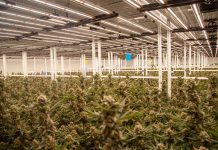

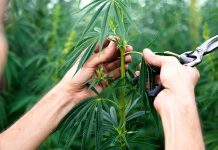
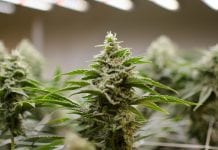
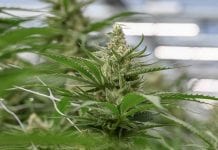
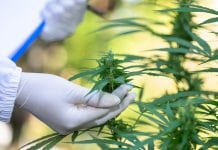










Thanks . May start it in India . please send the details.